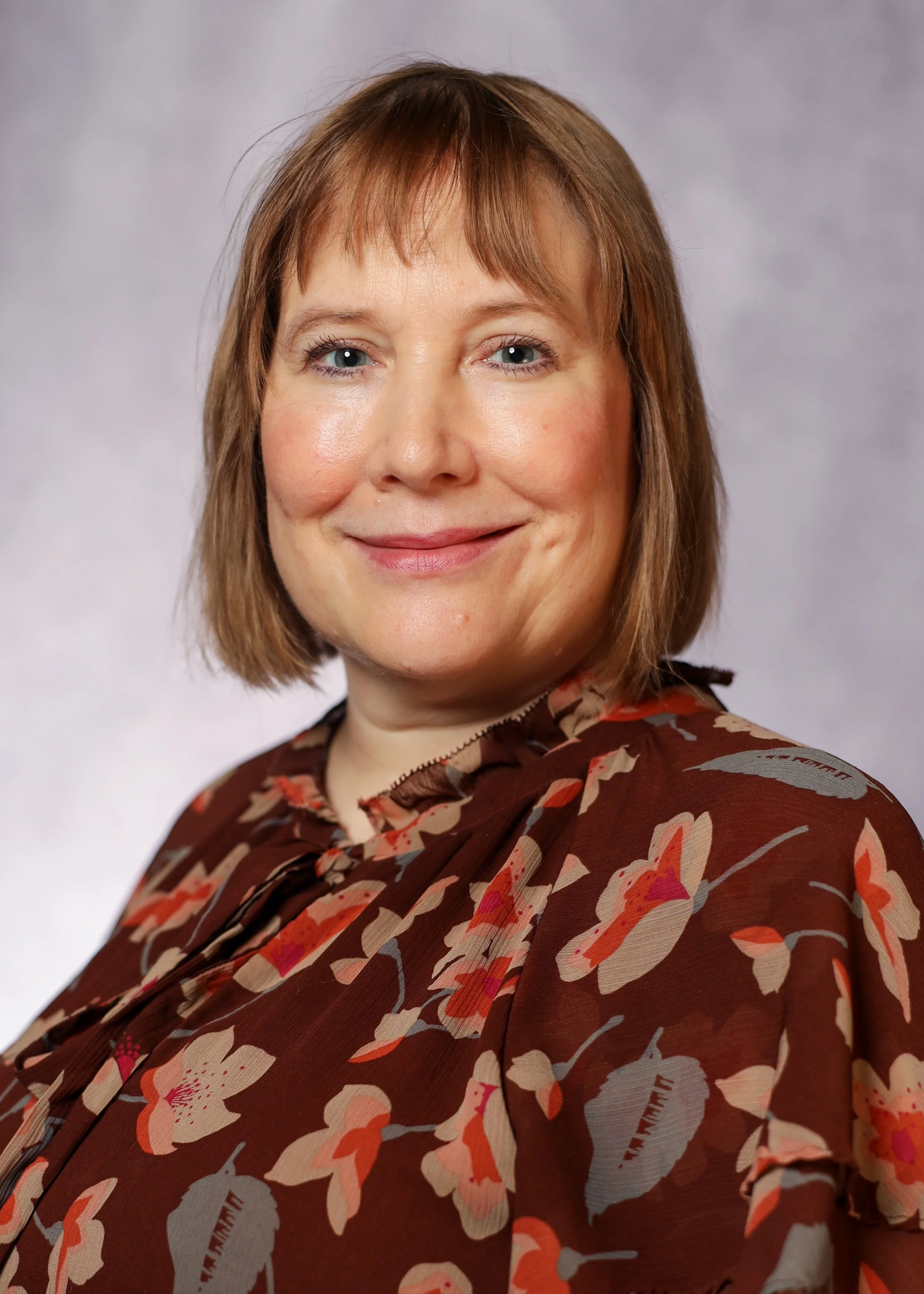SAME/FAME: Highlighting Voices of Lived Experience in Healthcare Education
Center for Learning and Leadership is Oklahoma’s federally-designated University Center for Excellence in Developmental Disabilities (UCEDD)
By Ellen Bannister
SAME/FAME (Self-Advocates as Medical Educators / Family Advocates as Medical Educators) brings together people with intellectual and developmental disabilities (I/DD), their family caregivers, and health professions educators to co-design and co-teach health care training that is centered on lived experience. Since its beginning in 2019 as a small seed grant funded by the University of Oklahoma’s Interprofessional Educators and Practitioners Association (IEPA), SAME/FAME has grown into a six-hour hybrid simulation training offered through OU Health’s Office of Interdisciplinary Programs to more than 800 learners across nursing, physician associate, medicine, pharmacy, social work, and allied health programs.
By incorporating real-life advocates and family caregivers as simulated patients and co-educators, SAME/FAME provides future providers with the opportunity to learn how to communicate, collaborate, and build trust with people who navigate the health care system every day.
The need is urgent. People with I/DD experience significant health disparities, lower rates of preventive screenings, and shorter life expectancy. Many health professions students graduate without ever being taught how to engage with patients who have I/DD and with family caregivers who may offer life-long daily support to their loved ones with I/DD.
As the mother of two young men with developmental disabilities and nontraditional communication, and as Academic Programs Coordinator for Oklahoma’s UCEDD (University Center for Excellence in Developmental Disabilities), I know firsthand how critical these skills are. SAME/FAME was developed out of those lived experiences, mine and those of our teaching team of advocates with lived experience of I/DD, family members, and health profession faculty and students.
Nancy Ward, a longtime advocate and SAME/FAME educator with lived experience of developmental disabilities, recalls the early days of building the training. Each month, our team gathered for potluck meetings, sharing food, stories, and ideas. Together, we shaped the learning objectives, figured out how to teach them, and wrote scenarios drawn from real-life experiences. “It was like the story of stone soup,” Nancy reflects. “Each person who came put something in the soup pot, and we ended up with a mixture that showed a little bit of each person.”
Dr. Lorrie Sylvester, a retired faculty member in physical therapy at OU Health Sciences, College of Allied Health, was an early and essential partner. She remembers that SAME/FAME took shape organically through interdisciplinary class sessions and community partnerships.
She says, “I distinctly remember when you and the self-advocates would come over to teach my developmental disabilities class.” She noticed that “Every one of them said how they had trouble dealing with their physicians when they were ill or had a stroke… I think SAME/FAME was born out of those experiences.”
Dr. Sylvester emphasizes how often clinical training leaves out families: “In PT, we often see families written off… That’s not how this should go.” She notes how family caregivers can teach providers a great deal, if they’re invited to the table.
“As the mother of two young men with developmental disabilities and nontraditional communication, and as Academic Programs Coordinator for Oklahoma’s UCEDD (University Center for Excellence in Developmental Disabilities), I know firsthand how critical these skills are. SAME/FAME was developed out of those lived experiences, mine and those of our teaching team of advocates with lived experience of I/DD, family members, and health profession faculty and students.”
That sense of shared ownership is a defining trait of SAME/FAME. Jacqueline Devereaux, a longtime family advocate and one of the original steering committee members, reflected on those early days, “At the very beginning of SAME/FAME, we didn’t know exactly what the outcome would be. We just knew the work was necessary. You find the funding, you gather the people, and you start doing the work, even if you’re not sure how it will unfold.”
Over time, she saw the impact that this approach had on learners: “Doing the simulations over and over again has been powerful. I've often thought, this person wouldn’t have considered that issue if they hadn’t gone through this experience. So many healthcare students have told us they’ve never had direct contact with people with disabilities or their families. But that changes when they meet us, people who live it. When someone hears, ‘This is what happened to me,’ it makes the issue more real. It becomes personal.”
The simulation component of SAME/FAME reinforces this impact. Interdisciplinary teams navigate realistic scenarios created by people with lived experience. In post-training surveys, nearly all participants say the training increased their knowledge. Many report a new understanding of how to communicate with people who have I/DD. And more learners after the training believe the majority of people with I/DD are capable of making their own health care decisions.
SAME/FAME continues to evolve. What began as a face-to-face pilot has grown to include virtual sessions, expanded interprofessional participation, and new video curriculum materials. But the heart of the training remains the same: a belief that people with lived experience are the best teachers.
SAME/FAME was built the way good community work often is, around shared meals, honest stories, and the belief that everyone has something valuable to contribute. That spirit of collaboration continues to guide us. When we bring our experiences together, we not only teach; we learn and we can make change happen.
This article is dedicated to the memory of Samuel Jenkins, one of the original SAME/FAME Steering Committee members. Sam passed away in 2021.
About the Author
Ellen Bannister is the Academic Programs Coordinator at the Center for Learning and Leadership| Oklahoma’s federally-designated University Center for Excellence in Developmental Disabilities (UCEDD). She works alongside advocates with lived experience of I/DD, family caregivers, and health profession faculty to co-develop disability-related training for future health profession workers. As the mother of two young men with developmental disabilities, she brings both personal and professional insight to her work. Ellen believes in the power of lived experience to change systems and improve care.


